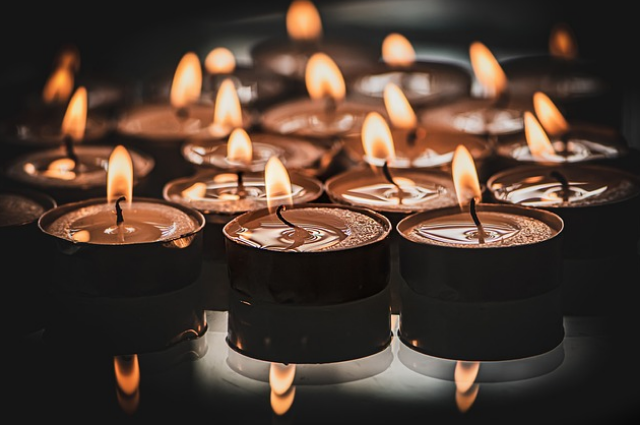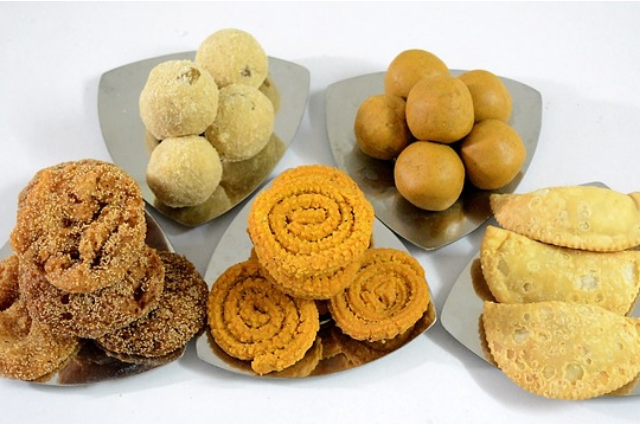
Image by Ri Butov from Pixabay
Diwali is a festival of lights. Diwali is a festival of Hindu also celebrated by other religions. Diwali is mainly observed in the 15 day of Kartik month – the darkest night of the month. Diwali mainly occurs after the Durga puja In many places and countries and states as well as cities. Many people decorate their homes with Diya, candles, and various designs and colors of led light.
Diwali or Deepavali gets its name from the Sanskrit word Deepavali, which means “rows of clay lamps”. Many people in India will ignite these lamps outside their homes to symbolize the inner light that protects them from spiritual darkness, in tune with holidays that are an ode to the triumph of good over evil.
Diwali is a significant festival in Hinduism, Jainism, and Sikhism. In a multicultural and diverse country like India, everyone has their way of celebrating this festival.
Many family members perform Laxmi puja to bring prosperity and happiness to the family and to remove evil wrong-doings.
During Diwali Kali Puja is celebrated by many members of the city and state. At the time of Diwali whole dressed as a garland necklace of light. Many people decorate their houses with rangoli and diya at the time of Diwali. Most children enjoy firing crackers in the time of Diwali. Many organizers and clubs sometimes organize kali puja in a decorative and elaborate style.
The significance of Diwali symbolizes the victory of light over darkness, Knowledge over ignorance, good over evil, and right over wrong. It is an occasion of high spiritual value as it signifies the opening of our true light which sparkles within us and sharing this glow with others as well. The festival light ignites among us to show the purity of love burning the wrong deeds in the flames of a light-burning candle.
Diwali is celebrated for five days such as
- On the first day of Diwali ‘Dhanteras’ is celebrated. Dhanteras means wealth and prosperity. Dhanteras have special significance in gold and jewelry on this day.
- On the second day of Diwali ‘narak Chaturdashi or small Diwali
- On the third day of Diwali or Deepavali - the main day of the festival of light symbolizes the triumph of good over evil and light over darkness. On this day mother Lakshmi is worshipped to achieve blessings of wealth and prosperity
- On the fourth day of Diwali, we observe Diwali Padwa and Govardhan puja. On this day we celebrate Vishwakarma day, people worship their instruments, arms, and machinery.
- On the fifth day of Diwali, Bhai Dhuj is observed which is dedicated to family bonding.
Many people decorate their homes with colorful rangoli designs. Rangoli is the most important tradition of Diwali. Diwali is celebrated not only by Hindus but also by all religious people. Diwali is important in Indian culture because people celebrate the victory of lord Krishna defeating the wicked demon Narakasura who kidnapped 16,000 princesses. Lord Krishna defeat Narakasura and free the princess from the clutches of Narakasura
Diwali is a festival of light. Diwali is also the biggest festival in India like Durga puja. The return of lord Rama to Ayodha after 14 years of exile the returning of Rama in Ayodha after 14 years is marked as a celebration of Diwali in the northern parts. Many people do greetings of Diwali by offering sweets, pakoras, and tea, and coffee.
The true message of Diwali is
It’s five days celebration which includes good food, fireworks, colored sand, and a special candles and lamps. Hindus celebrate their Diwali based on the belief which they think and in which they live. But there is one common theme where people celebrate the victory of good over evil.
Some facts about Diwali
- The festival occurs on a no-moon night
- It celebrates the birth of Lakshmi goddess of wealth
- It’s the end of the harvest season
- It includes the festival of Annakut
- There are plenty of fireworks and lights.
Diwali has some symbols of its own
- Ganesha
- Bindi/Pottu
- Aum
- Lotus flower
- Namaste
- Rangoli/Kolam
- Gopura
- Oil lamps
On Diwali, many sweets are prepared for doing puja, for greetings, and also for celebrating Diwali. Diwali festival is celebrated in other countries also in different ways and also in different styles. Traditionally On Diwali boondhi ladoo, made with fried gram droplets soaked in cardamom and saffron syrup.

Similarly, lotus flower is important in Diwali Puja as it is associated goddess Laxmi. Similarly, these lotus flower symbolizes purity and prosperity. During of Diwali goddess Laxmi is welcome in a grand way as goddess Laxmi symbolizes prosperity and auspiciousness.
Diwali is a festival of rows of light. Diwali is the festival that celebrates the victory of lord Rama's victory over Ravana and his return to his kingdom after 14 years of exile also the victory of lord Krishna defeating Narakasura and rescuing 16,000 princesses from Narakasura’s captivate.
The candles which we ignite on Diwali symbolize the light we commemorate the legendary return of the Hindu god Rama to his kingdom after 14 years of exile.
Diwali honors the Hindu goddess of wealth Lakshmi. The lights and lamps are said to help Lakshmi find her way into people's homes and bring prosperity in the year to come.
Diwali also represents some colors such as Red, Pure Yellow, vivid magenta and Pure blue are prominent colors of Diwali. With these colors, various rangoli designs are created and made. Rangoli designs are created to make Diwali attractive and beautiful. Rangoli are designs to welcome Goddess Lakshmi.
The beauty of Diwali is the unity of five different ideas, each of which takes place in a special thought or ideal every day. In Diwali festival, light plays an important factor in Hindu mythology. On Diwali, we celebrate the victory of light over darkness.
Diwali endures people with a beautiful message
“Millions of lamps illuminate our life with joy, prosperity, health and wealth forever”
Diwali festival brings positivity to the mind of the people
Similarly teaching Diwali shows
- Remove Darkness
- Patience
- Sharing
- New day beginning
Diwali allows children to seek blessings from elders and learn to respect them.
Diwali gives the message of togetherness.
(Citations from google Wikipedia)
